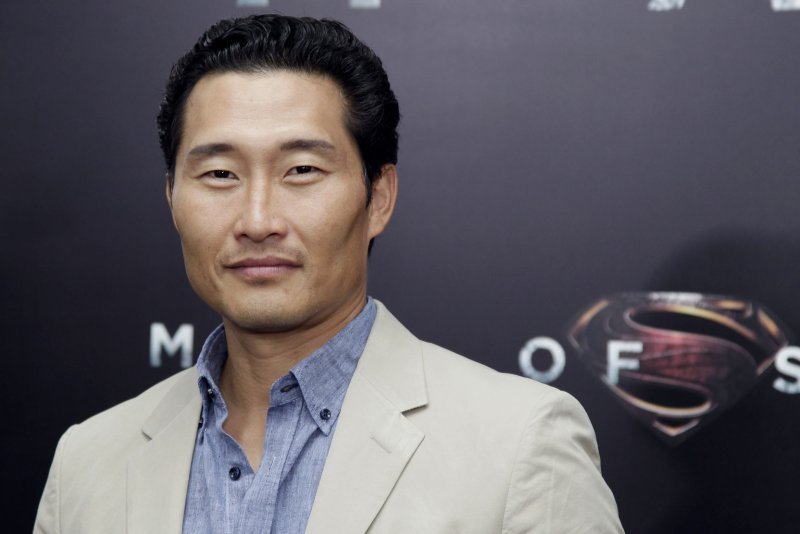1 of 5 | Daniel Dae Kim's new animated sci-fi drama, "Pantheon," premieres on AMC+ Thursday. File Photo by John Angelillo/UPI |
License Photo
NEW YORK, Sept. 1 (UPI) -- Lost and Hawaii Five-0 actor Daniel Dae Kim says his new animated sci-fi drama, Pantheon, entertains as it asks big questions about the boundaries of technology.
"That kind of entertainment to me is very satisfying," Kim told UPI in a recent phone interview.
"There is a role for entertainment that is really mindless and junk food for your brain, but, for me, personally, I enjoy thought-provoking material. This falls into the second category," he added. "For every technological advance that we have with the best of intentions, there are always ramifications that we can't account for and that is something that we have to really strongly consider."
Set to premiere Thursday on AMC+, Pantheon co-stars Paul Dano, William Hurt, Maude Apatow, Aaron Eckhart and Taylor Schilling.
The screen adaptation of Ken Liu's short stories follows Maddie (Katie Chang), a bullied teen receiving computer messages from an unknown user claiming to be her dead father, David (Kim).
As she and her mother Ellen (Rosemarie DeWitt) investigate the origins of the mysterious communication, they realize that a tech company may have downloaded David's consciousness, keeping a digital version of him "alive."
"This is somewhere in our future," Kim said. "I can't say, obviously, how far into the future, but the advances that we are making scientifically with artificial intelligence and computer technology are going quicker than we think and the advances are exponential."
Kim took the role of David mainly because he liked the character's relationship with his daughter.
"I thought it was really loving and I thought the fact that he wanted to come back and stay in her life and be a father figure to her, even if he couldn't be a father, was something that really appealed to me," Kim noted.
"At the core of every television show is a family -- whether it is a family by blood or a family by choice. These family issues are not foreign to anyone who has their own family."
Kim also said Pantheon is an excellent example of how Hollywood lately has been embracing diversity and inclusion.
"I do think it's getting better," he emphasized. "The fact that the family that we're talking about has as its leads two Asian characters is something that may not have happened as recently as five years ago. It's something that isn't front and center of the marketing campaign for this show. It is just an intrinsic part of the storytelling and that, to me, represents progress."
The actor -- who also lent his voice to the characters of Benja in Raya and the Last Dragon, Micah in She-Ra: The Princesses of Power and Agent Gat in Agents of Mayhem -- said he is always impressed when he sees good animation and watching episodes of Pantheon allowed him to feel like he was transported to another world.
"When we are in the booth and recording, we are solo," he explained. "We don't have the benefit of the other actors to play off, so the fact that the dialogue sounds so natural and it sounds like a real conversation is a testament to the direction and to the animators because they have to create the [facial] expressions and the dynamics for the scenes to work."
Kim described voice work as "freeing."
"So much of our business on camera is defined by what we look like," he said.
Giving performances in cartoons also means actors' characters can do extraordinary action scenes without spending hours in the gym to prepare.
"That's the beauty of animation: they can make us as cool as they want," he laughed.
Voice work also helped Kim stay busy and creative during the coronavirus pandemic lockdowns in 2020-21 because he and other artists were able to tape their lines of dialogue for animated TV, film and video game projects from their homes.
"I think entertainment, in general, is going to progress and advance and evolve. The plus of that is that we can do things like record remotely," he said.
"One of the negatives is that there's less and less interaction among the performers themselves because everything can be done remotely," he said. "Deep-fake technology is creating a dynamic where you may not even need to actually perform a role any more. These are ethical questions for our industry, as well as our society."















